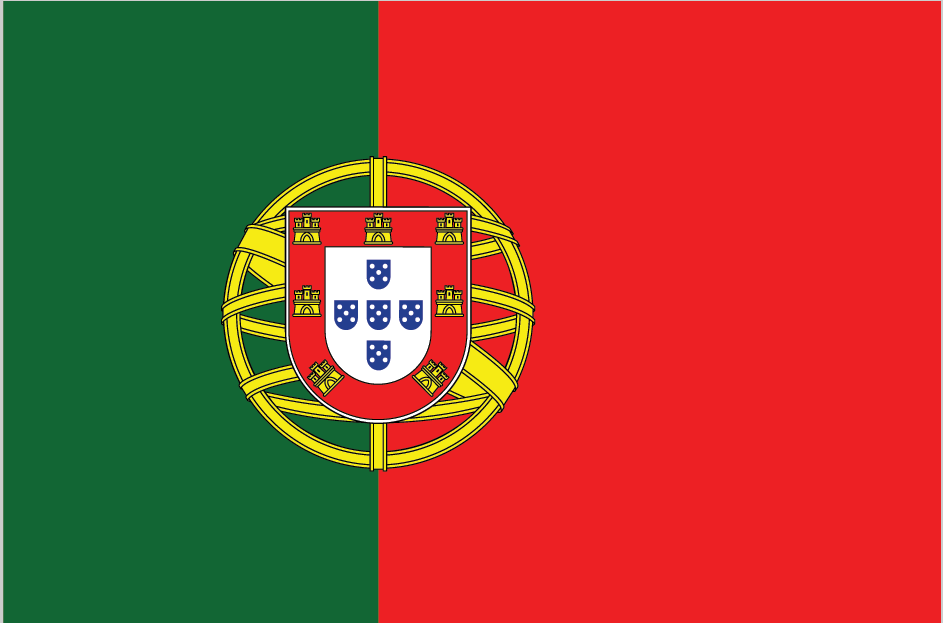
Sustainability Efforts
Country: Portugal
Explore sustainability efforts in Portugal. The United States Environmental Protection Agency (“EPA”) said it well when they state:
“Sustainability is based on a simple principle: Everything that we need for our survival and well-being depends, either directly or indirectly, on our natural environment. To pursue sustainability is to create and maintain the conditions under which humans and nature can exist in productive harmony to support present and future generations.”
About Portugal
Portugal, located in southwestern Europe, is known for its rich history, charming cities, and beautiful coastline. It offers historic sites like Lisbon’s Belem Tower and Porto’s Ribeira district. Portugal’s vibrant culture is reflected in its traditional fado music, colorful festivals, and delicious cuisine, including pastéis de nata. The country boasts stunning beaches along the Algarve coast and the rugged cliffs of the Azores and Madeira islands. Portugal is renowned for its production of port wine and cork. Its warm climate, welcoming people, and UNESCO World Heritage sites make it a popular destination for travelers seeking a mix of history, culture, and natural beauty. Sustainability efforts in Portugal will enhance the country’s future.
Sustainability Efforts
Toggle each button below to “open” and “close” the presented data.

Poverty: Portugal has made significant strides in reducing poverty rates, particularly post the 2008 financial crisis. The nation introduced the Guaranteed Minimum Income (Rendimento Mínimo Garantido) in 1996, which was later renamed Social Insertion Income (Rendimento Social de Inserção) - a scheme to support the most financially vulnerable. By 2020, the poverty rate had decreased to around 17%, thanks to a combination of social welfare schemes and economic recovery.

Hunger: Portugal's National Food Bank Against Hunger (Banco Alimentar Contra a Fome) has been proactive in collecting and distributing food to the needy. This organization serves as a bridge between food surplus sectors and families in need, ensuring that hunger is kept at bay.

Healthcare: Portugal's National Health Service (SNS) provides universal healthcare coverage to its citizens, ranking among the top in European healthcare systems. Recent investments have been made to modernize health facilities and infrastructure to ensure quality healthcare for all.

Education: Portugal has increased its investment in education over the years. The country has a near 100% literacy rate among the young population. Moreover, the government has been emphasizing vocational training to align education with market needs.

Gender Equality: Portugal has undertaken a series of legislative measures promoting gender equality in recent years. This includes laws to promote equal pay and to counteract domestic violence. The nation has also seen a rise in the representation of women in political and corporate leadership roles.

Clean Water Sanitation: With over 90% of its population having access to clean drinking water and sanitation services, Portugal's water management systems are robust. Recent initiatives also focus on the conservation of water resources and promoting sustainable usage.

Affordable Clean Energy: Portugal made global headlines in 2016 by running on renewable energy alone for 107 hours. The nation is on track to become carbon neutral by 2050 and is investing heavily in solar, wind, and hydroelectric power.

Economic Growth: Post the 2008 crisis, Portugal has focused on diversifying its economy and boosting sectors like technology, tourism, and renewable energy. These efforts have culminated in steady GDP growth in recent years.

Industry Innovation: Portugal has established itself as a budding hub for startups in Europe, particularly in Lisbon. The government has been encouraging innovation through various incentives and funding schemes.

Reduced Inequalities: To reduce economic disparities, Portugal has revamped its tax policies to be more progressive, ensuring the wealthy contribute a fair share. Social welfare schemes have been broadened to include marginalized communities and ensure inclusive growth.

Sustainable Cities: Portugal's urban centers, like Lisbon and Porto, are investing in sustainable infrastructure. This includes green public transport, efficient waste management, and urban green spaces.

Responsible Consumption and Production: Portugal adopted the Circular Economy Action Plan, which focuses on sustainable management of resources. It promotes recycling, waste reduction, and sustainable production methods.

Climate Action: Portugal is a signatory to the Paris Agreement and is committed to reducing greenhouse gas emissions. With an aim to become carbon neutral by 2050, the nation has set ambitious targets to transition to renewable energy sources.

Life Below Water: Portugal, with its vast coastline, has implemented marine conservation zones to protect aquatic biodiversity. Efforts are in place to prevent overfishing and protect coral reefs and marine habitats.

Life on Land: Portugal is dedicated to the conservation of its rich biodiversity. The nation has set up numerous national parks and reserves to protect native species and their habitats.

Peace and Justice: Portugal boasts a stable and transparent governance system, ensuring justice and the rule of law. It has low crime rates and has been actively promoting peace initiatives both domestically and internationally.

Partnerships to achieve the Goal: Portugal has been collaborating with multiple nations and international organizations to promote sustainable development. These partnerships aim to share knowledge, resources, and best practices to achieve common sustainability goals.



